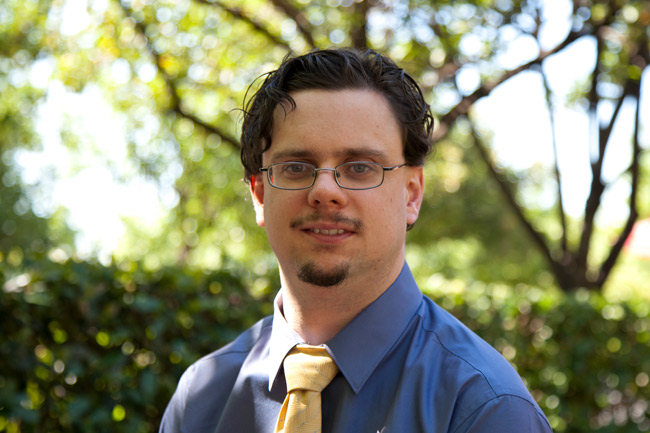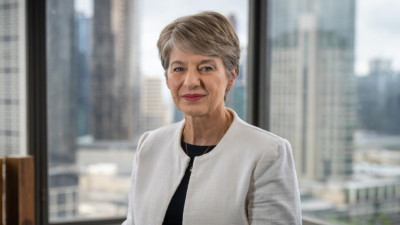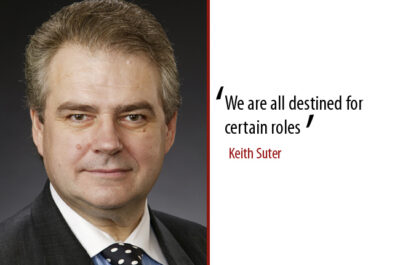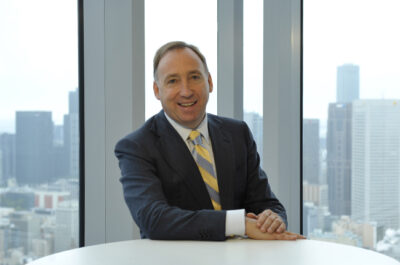How Christian Super makes an impact
Tim Macready and his directors, colleagues and advisors call it investing in a ‘biblical style’. Others call it ‘ESG on steroids’. Whatever the label, it’s working for the members of Christian Super. Greg Bright talks to Tim Macready, the fund’s CIO.
There are lots of things which set Christian Super, a $750 million fund, apart from the pack. For instance, there’s its desire to reflect the beliefs and values of its members, and there’s the way it wants personal member issues, such as insurance and hardship claims, handled by fund staff, rather than outsource providers.
But the big thing, which tends to define its essence in the world of superannuation, is the way it invests its members’ money. Christian Super has both positive and negative screens for its ESG-style strategies, which is rare enough, but the fund also has an asset allocation of 8 per cent to what is now referred to as ‘impact’ investing.
Tim Macready, the 31-year-old CIO and oldest member of the five-person in-house investment team, says: “The bible has a lot to say about money, but not necessarily about investments. We start from the pre-supposition that the vast majority of the members want the fund to reflect their beliefs and values. We survey the members each year to make sure we’re on the same page… This gives us a right and a responsibility to do as much good as we can while delivering on our investment targets.”
Christian Super, which started life in 1984 as Christian Schools Superannuation Fund and subsequently merged with funds such as the Baptists Retirement Fund and the Church of Christ Provident Fund, has an ethical investment charter to guide the investment committee, Macready and his team, asset consultant JANA and independent advisors Michael Anderson and Brett Elvish.
The charter is broad but all those involved in the fund’s investments discuss its principles frequently. In part the charter states: “We strive to pursue investment in corporations that care for people and God’s creation, who demonstrate sound ethical practices and meet performance standards in their social, environmental and financial stewardship.”
It includes examples of appropriate strategies in the categories of sound ethical practices, environmental stewardship, social stewardship, and financial stewardship as a guide to the stocks which qualify under its screens.
The screens are not strictly ‘ESG’. They go a lot further than that. For instance, companies caught out on bribery and corruption are definitely out, but those involved in predatory practices are also frowned upon, including questionable marketing which boosts consumer debt.
Elvish, the former chief executive of InTech Investment Consulting who now runs his own advisory firm, Financial Viewpoint, says that Christian Super works very hard to reflect the belief sets of its membership.
“We’re in an industry which tends to deliver a commodity outcome even though there are different demographics,” he says. “Christian Super is genuinely focused on a common set of beliefs.”
The specific part of the portfolio devoted to ‘impact’ investing includes making direct investments in clean technology, micro finance, social infrastructure, sustainable agriculture, community finance, social benefit bonds, and, the recently added micro insurance for emerging markets. This part of the portfolio totals about 8 per cent and the fund is looking to increase the allocation to 10 per cent.
Macready says: “When we get to 10 per cent we will take another look at it. Most, or all, of those investments are illiquid, so that’s a constraint for us.”
The criteria for these investments include that they target long-term returns as well as long-term social and environmental benefits. They are investments which set out to achieve a social outcome.
However, Macready is aware of the potential pitfalls. “It’s easy to get carried away with the social benefits. We need to stay focused on the return element too.”
An interesting example is Christian Super’s pioneering investment, along with NGS Super, in the NSW Government’s $7 million Newpin social benefit bond – its first social benefit bond consummated in March this year – run by Uniting Care Burnside with the advice of Social Ventures Australia. Christian Super wanted to invest $2 million in the bond but was restricted to $750,000 because of capacity. The bond will fund four-six new Newpin centres, which aim to break destructive family relationships which lead to child abuse and neglect. Typically, these centres get involved in reuniting a child in foster care with his or her mother who has been helped into a new environment.
The investors are paid interest based on the success of the program. If targets are met, Christian Super will get a return of 12-14 per cent (capped at 15 per cent). The worst-case scenario, if the program is shut down within three years, is a capital loss of 10 per cent. Christian Super has put the investment into its portfolio on a base-return basis of 8 per cent.
“If we get our base rate that would be fantastic,” Macready says. “In our view, the return being offered is well above the market… It’s the Government subsidizing social outcomes.”
Another example is in the micro finance sector, which is a mature industry, according to Macready, but one which still has pockets of value, such as renewable energy in frontier markets. Christian Super is looking at a new investment which is split 50:50 between development banks and investors, whereby the investors get their capital back plus 4 per cent interest first, then the banks get their capital and then the investors get the rest of the return up to 10 per cent.
The fund is the only Australian super fund member of the Global Impact Investing Network. The only other fund member is the US teachers’ union-based TIAA-CREF, with most other investors representing foundations.
Macready says: “Most of the deals we source are global. Not many other super funds try to do what we do. When we travel we meet with any asset owner we can who invests in this space.”
Increasingly, Christian Super wants to migrate its impact investments into its traditional asset class allocations. The rest of the broad portfolio is currently about 53 per cent equities (50:50 Australian and international), 8 per cent property, 20 per cent fixed interest and 8-9 per cent cash. International equities is 20 per cent hedged, although the default option for hedging is the standard 50 per cent.
Macready, who did actuarial studies at Macquarie University and worked at Aon Consulting for about four years before and after graduating, joined Christian Super as a development manager in 2005 and was appointed the fund’s first specialist CIO in 2007.
Up until 2010, the target for the fund was to beat its peers. “We wanted to prove that our investment philosophy could match the others,” Macready says. “While we were a touch under the median fund, we felt that we had demonstrated sufficiently that you could have values-aligned investments without suffering financially – the difference was from manager performance, not because of ethical screens or innovative investments… Since then, we’ve moved to an absolute return focus.”
The target is inflation plus 3.5 per cent for the default fund. Macready says the new focus changed the mindset of the investment team. “We ask ourselves different questions now,” he says.
The biggest question at the moment is what to do in a low-return environment. “It’s going to make it hard to achieve our objectives,” he says.
But he believes size is on the fund’s side. For instance, Christian Super has one of the best-performing cash options in the market. This was achieved in the past by taking advantage of the Government’s guarantee on bank deposits of up to $1 million after the GFC hit. The fund nimbly split its cash holding into multiple small units and farmed this out to credit unions and other institutions to take advantage of the rates. The team made the effort to roll over more than 20 TDs every month.
“I think the superannuation system in 20 years time will probably look a lot like the banking system,” Macready says. “There will be a few very big players and then some boutiques and specialists. Being small has its advantages.”
Christian Super is, sadly perhaps, in the minority of funds with a growing membership base. Surveys show its membership is also more engaged than most.










